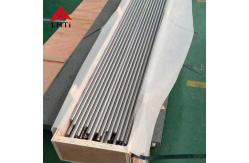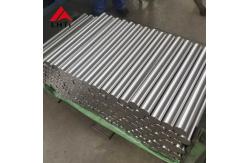Grade 3 Titanium Bars Enhancing Patient Care and Advancing Healthcare Technologies
|
|
Titanium alloys have become indispensable in the medical industry due to their unique properties that cater specifically to the demanding requirements of medical applications. Among these alloys, Grade 3 titanium stands out as a favored choice, particularly in the form of bars used for various medical devices and implants. This article delves into the characteristics, advantages, and applications of Grade 3 titanium bars, emphasizing their critical role in enhancing patient care and advancing healthcare technologies. Properties of Grade 3 TitaniumGrade 3 titanium is a commercially pure titanium alloy, containing approximately 99% titanium with small amounts of other elements such as iron and oxygen. This composition gives it a unique set of mechanical properties, including excellent strength, lightweight nature, and superior corrosion resistance. Grade 3 titanium exhibits a tensile strength of around 345 MPa and a yield strength of approximately 275 MPa, making it suitable for applications that require high strength-to-weight ratios. One of the most significant advantages of Grade 3 titanium is its biocompatibility. This property is crucial in the medical field, as implants must integrate seamlessly with human tissue without eliciting adverse reactions. The alloy's purity ensures minimal risk of allergic responses, which is vital for patient safety. This makes Grade 3 titanium an ideal candidate for long-term implants, where interaction with body fluids and tissues is inevitable. Corrosion ResistanceCorrosion resistance is another standout feature of Grade 3 titanium. The alloy forms a protective oxide layer when exposed to air, which effectively prevents further oxidation. This characteristic is especially important in medical applications, where implants are frequently subjected to harsh environments within the body, including exposure to various bodily fluids. The corrosion resistance of Grade 3 titanium significantly contributes to the longevity of medical devices, ensuring that they remain functional over extended periods without degradation. Applications in the Medical IndustryThe versatility of Grade 3 titanium bars makes them suitable for a wide range of medical applications. Common uses include dental implants, orthopedic screws, plates, and other fixation devices. In orthopedic surgery, Grade 3 titanium is often used in load-bearing implants due to its high strength and low density. These attributes help reduce the overall weight of the implant while ensuring adequate structural support for healing bones. In dentistry, Grade 3 titanium is favored for dental implants because of its excellent biocompatibility and ability to osseointegrate-where the bone grows around the implant-enhancing stability and longevity. The smooth surface finish of Grade 3 bars also aids in reducing bacterial adhesion, which is critical in minimizing infection risks during and after surgical procedures. Manufacturing and CustomizationManufacturing processes for Grade 3 titanium bars typically involve techniques such as forging, machining, and extrusion, allowing for precise dimensions and custom shapes tailored to specific medical needs. The ability to produce bars in various diameters, including 12mm, enables manufacturers to create components that meet the unique anatomical requirements of patients. Furthermore, Grade 3 titanium bars can be subjected to various surface treatments, including anodizing and coating, to enhance their properties further. These treatments can improve wear resistance and reduce friction, making them even more suitable for high-performance medical applications.
Chemical composition of medical titanium bar:
Production Process: Raw Materials: Titanium sponge or recycled titanium scrap. Manufacturing Techniques: Melting, refining, casting, forging, rolling, and machining. Quality Control: Strict adherence to ASTM and other international standards for material composition, mechanical properties, and dimensional accuracy.
Quality Testing: Chemical Composition Analysis: Ensures the titanium meets specified alloy requirements. Mechanical Testing: Includes tensile strength, yield strength, elongation, and hardness testing. Non-Destructive Testing: Ultrasonic testing, and dye penetrant inspection to detect surface and internal defects. Dimensional Inspection: Verification of diameter, length, and straightness. Certification: Issuance of mill test certificates (MTC) according to EN 10204/3.1 or equivalent standards.
The Importance of Grade 5 Titanium in MedicineTitanium alloys are crucial in the medical field, thanks to their unique properties that meet the strict demands of medical applications. Among these, Grade 5 titanium is especially preferred, particularly in bar form for a variety of medical devices and implants. This article examines the features, advantages, and applications of Grade 3 titanium bars, underscoring their significant role in enhancing patient care and advancing healthcare technology.
Advantages of Titanium bars: High Strength: Titanium bars offer high strength comparable to steel but at about 45% lighter weight. Corrosion Resistance: Excellent resistance to corrosion, particularly in environments containing chlorides. Biocompatibility: Non-toxic and biocompatible, making it suitable for medical implants. High-Temperature Resistance: Maintains strength and integrity at elevated temperatures. Low Density: Provides significant weight savings in applications requiring structural strength.
Titanium Bar Applications: Aerospace: Structural components, landing gear, turbine blades. Medical: Surgical implants, prosthetics, orthopedic devices. Industrial: Chemical processing equipment, marine components, sports equipment. Automotive: Exhaust systems, suspension components. Consumer Goods: Watches, jewelry.
We maintain a robust quality control system that oversees every stage of titanium production, from sponge material to finished products. Selection of Raw Materials: We exclusively use high-quality raw materials, specifically grade 0 or 1 titanium sponge. Advanced Testing Equipment: MPI Testing Machine: Analyzes the chemical composition of titanium products. Turbine Detectors: Identify surface defects as small as 3mm. Ultrasonic Inspection: Detects internal defects below 3mm. Infrared Measurement Devices: Measure the entire diameter of the bar from top to bottom. Professional Inspections: All products undergo thorough inspections by three qualified quality control specialists before delivery. Quality Certification: We provide an "EN10204-1 quality certificate" for each order. Additionally, our materials are routinely sent to the Physical and Chemical Testing Center of West Metal Materials Co., Ltd., a reputable testing institution in China, for comprehensive quality verification.
|
||||||||||||||||||||||||||||||||||||||||||||||||||||||||||||||||||||||||||||||||||||||||||||||||||||||||||||||||||||||||||||||||||||||||||||||||||||||
| Product Tags: Healthcare Technologies Titanium Bars Patient Care Titanium Bars Grade 3 Titanium Bars | ||||||||||||||||||||||||||||||||||||||||||||||||||||||||||||||||||||||||||||||||||||||||||||||||||||||||||||||||||||||||||||||||||||||||||||||||||||||
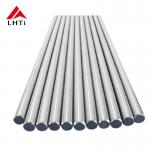
|
welded titanium bar | Titanium Alloys Bar at GR1 GR2 GR5 and GR7 |
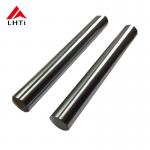
|
titanium welded bar| Maximize Efficiency with High-Performance Titanium Bar GR1 to GR7 |
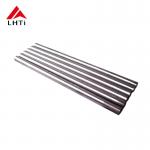
|
ASTM B338 and B337 Standards for High-Performance Titanium Bars | small diameter titanium bars |
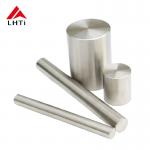
|
Manufacturing With Titanium Tube GR1 GR2 GR5 And GR7 | Titanium Alloy Tube | Titanium Welded Tube |
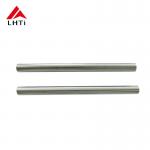
|
GR1 GR2 GR5 And GR7 Titanium Alloys The Optimal Solutions For High-Stress Conditions |
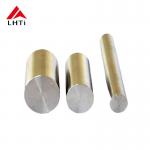
|
ASTM B338 and B337 Titanium Alloy Bars Essential for Marine and Industrial Applications |

